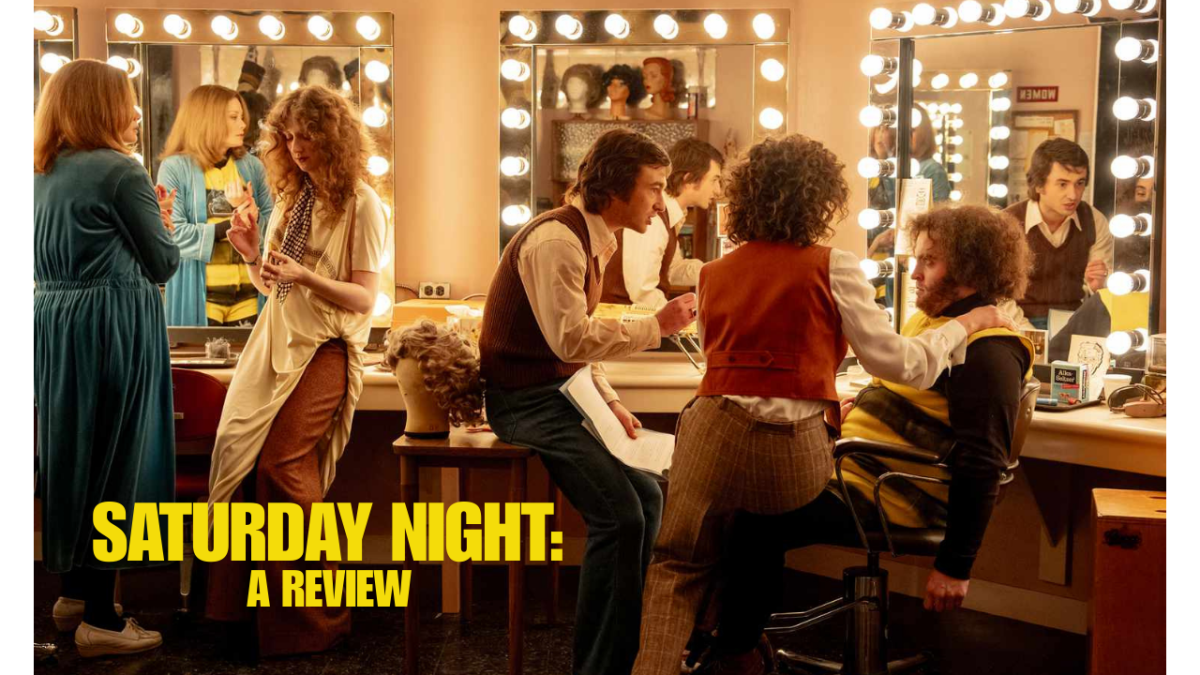The third season of Netflix’s original series “Atypical” premiered Nov. 1. The 10 episodes follow Sam Gardner (Keir Gilchrist), an autistic teenager that loves art and penguins, as he begins his first year in college. As a warning, there are spoilers about previous seasons and the new season.
The dynamics of the show change in this third season as Sam is dropped into a new world in college where nobody knows he’s autistic, which he was bullied for in high school. A statistic he hears in his support group that four out of five autistic people do not graduate in four years becomes a driving force for him. Sam wants to prove he can beat the odds and does all he can to prepare for college but struggles once it starts.
Many people can relate to Sam’s need to prove others wrong and to show he is capable, but no matter how hard you try, you might still need a little help. Sam is encouraged but never shamed for needing accommodations because of his autism. That’s an important lesson for everyone because we all need help sometimes, and there’s nothing wrong with that.
Sam also has a hard time making friends due to his difficulty socializing, but Sam’s best friend, Zahid (Nik Dodani), encourages him to attend a party where he meets Abby (Kimia Behpoornia), a fellow art student and finds a community of other artists he feels comfortable with.
It was nice to see Sam find his own space and not be judged for his differences but celebrated for his artistic talents. While the focus is on Sam’s difficulty making friends because of his autism, Zahid, who is starting nursing school, is also shown to be struggling to make friends within his classes. It serves as a reminder that making friends is difficult for anyone in a new place, but it’s a matter of finding people you relate to.
Sam and Zahid’s friendship has always been important in the show, but Zahid’s new girlfriend, Gretchen (Allie Rae Treharne), adds new conflict to their relationship. It was interesting to see how the confident Zahid changed himself for Gretchen, indicating that maybe he isn’t as sure of himself as he seems. Rather than the always suave, happy Zahid, we see an insecure Zahid that wants to please Gretchen no matter the costs. He isn’t as sure about himself as he’s always seemed, adding a great storyline within the show.
Sam does not handle these changes well as the pair has a surprising falling out. Zahid was always loyal to Sam, so their friendship ending over a girl was surprising, (although they rebuild their friendship by the end of the season).
Like the previous seasons, the Gardner family which includes Casey (Brigette Lundy-Paine), Sam’s younger sister, and his parents Elsa (Jennifer Jason Leigh) and Doug (Michael Rapaport), have their own stories that are explored.
Doug and Elsa are still struggling with the fallout from Elsa’s infidelity and are trying to navigate their turbulent relationship. This season shifts the lens a little, focusing more on Doug than Elsa, but her voice still seems to be the most prominent. While it is crucial for the show to continue exploring their relationship, it would have been intriguing if the series moved even more to Doug’s point of view because his character is neglected in terms of development. Plus, anything else Elsa has to say is uninteresting and her character is unlikeable. Despite that, watching how their relationship continues to change is captivating.
Casey, as a high school junior, is beginning to think about attending UCLA and hopes to get a track scholarship. Her story becomes center stage, in terms of secondary characters. She struggles with her feelings for her best friend Izzie (Fivel Stewart), a fellow track athlete while being in a relationship with Evan (Graham Rogers), a high-school dropout trying to figure himself out.
Fans were excited about this queer representation when it was hinted at last season. The plot felt authentic because it was mostly treated as any other relationship, with no specific mentions about sexuality, just an understanding of the feelings these two girls were experiencing. Handling it this way makes it clear to those that think of queer relationships as less than straight relationships that there really isn’t a difference. Also, it puts the focus on Casey and Izzie’s relationship instead of what is normally shown when queer people are involved, like coming out and denial.
Specifically, queer struggles are not completely ignored, which provides the characters with more nuance while also making it more relatable to queer viewers. However, Casey dating Evan while experiencing attraction towards Izzie is not favorable. That part of the storyline also seemingly mimics Doug and Elsa’s story. It would have been more interesting if they opted for another main point of tension.
While the show is one of the few that has an autistic main character, the depiction and show itself have come under fire from various autistic people and advocates. Due to a lack of autistic people involved in the show’s creation, many feel it is a stereotypical portrayal that enforces the idea that autistic people are all white males with the same types of traits. In reality, it is often described as a spectrum where people can experience different traits at varying intensities. Autism can also affect anyone regardless of race, ethnicity or gender, but autistic women are often underrepresented and underdiagnosed because of bias in the medical field that autistic people are supposed to act as Sam does.
Some also feel Sam’s autism is shown as something to be laughed at for not being “normal” and that his family and others around him see his autism as an inconvenience to them, among other issues. It seems Netflix tried to combat some of this negative feedback through the inclusion of diverse autistic people playing autistic characters and autistics writers.
The show has also received support from Autism Speaks, a widely recognized organization denounced by many autistic people who disagree with its practices, opinions, such as “autism needs to be cured,” and its tendency to silence the voices of autistic people, instead of raising the voices of their family members. This vocal support makes many autistic people feel even more uncomfortable with the show and has caused many to abandon it altogether.
Even with its issues, “Atypical” has improved with each season in terms of more diverse, realistic representation and storylines. The show tries to present Sam as a symbol of hope for other autistic people by showing him succeed despite his struggles, whether it be in college, friendship or his romantic relationship. The further exploration of the secondary characters’ lives was interesting and entertaining while not detracting from the main story about Sam. It is an engaging, feel-good show that weaves in various emotions to help viewers connect with the characters and their struggles.














